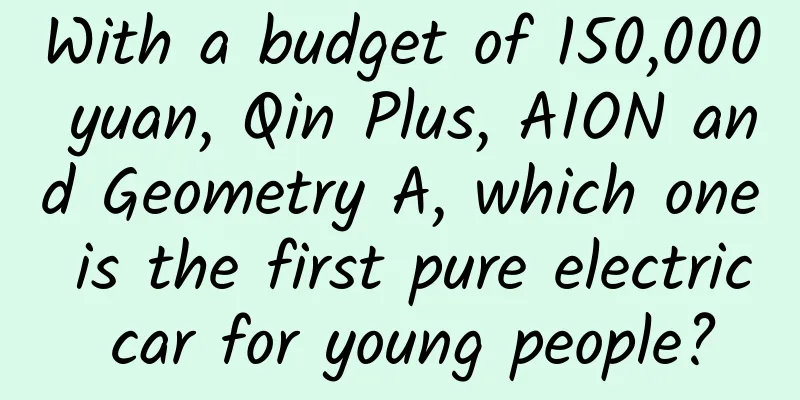BYD has fired the first shot in the fight for equal rights for smart driving, with all employees equipped with Dipilot’s Eye of God as standard. Who’s panicking?

|
There is no doubt that 2025 will be another year of "volume" and "flying". However, this time, the leader BYD is not playing a "price war" but a "smart driving game". Before the Spring Festival holiday was over, news that BYD was about to hold a smart strategy conference spread all over the Internet. Some media learned that starting this year, BYD will equip all its cars with smart driving solutions, including low-priced models such as Seagull and Dolphin; there are at least three solutions, the entry-level one comes from Raincom, the mid-range one is self-developed by BYD, and the high-end one is a solution jointly developed by BYD and Momenta; the smart driving chips include Nvidia Orin X/N and Horizon J6 M, etc. As soon as the news came out, the smart driving sector surged. At present, BYD's total market value has exceeded 905 billion yuan, a three-month high. In BYD's 2025 production and sales plan, at least 60% of them will be equipped with high-speed NOA or higher intelligent driving systems, which is expected to drive NOA to become a popular configuration for models with a price range of 100,000 to 150,000 yuan. BYD Dynasty's flagship models Han L and Tang L will be launched in March. Both will be equipped with the DiPilot300 "Eye of God" high-end intelligent driving system, supporting intelligent driving functions such as high-speed NOA and city NOA, driving the brand's high-end development. In other words, starting this year, all BYD brand cars, from the Seagull to the Yangwang, will be equipped with the Dipilot "Eye of God" intelligent driving system as standard, making intelligent driving truly accessible to ordinary people. This also echoes the view put forward by BYD Chairman Wang Chuanfu in 2021 that "the great transformation of the automobile industry will be electrification in the first half and intelligence in the second half." It is not surprising that BYD has made rapid breakthroughs in the field of intelligence. However, why is BYD, which has always been low-key in technology promotion, so "high-profile" in 2025? Intelligent driving has always been BYD’s “weakness”. Although BYD has developed well in the past few years, it has been widely criticized in the industry for its intelligent driving being inferior to that of leading companies. Even though BYD has made huge investments and rapid progress in the field of intelligence in recent years, BYD, which does not like to show off, rarely deliberately packages itself in this regard, which has made it difficult for it to "break" people's inherent perception of its intelligence level. What many people may not know is that BYD began to reach an unmanned driving cooperation with Baidu as early as 2015, and Wang Chuanfu also served as Baidu's autonomous driving consultant. In early 2022, BYD chose Baidu as its intelligent driving supplier, but in 2023, market news came that BYD decided to abandon its autonomous driving technology cooperation agreement with Baidu and instead focus on its own intelligent driving. In January 2024, BYD first unveiled its vehicle intelligent architecture Xuanji, planning to invest 100 billion yuan in intelligence. By mid-2024, BYD established the Tianxuan Development Department and the Tianlang R&D Department, focusing on self-developed high-end and low-end intelligent driving solutions respectively. In October of the same year, the integration was completed and a forward-looking department was established. Now, BYD wants to make the "Eye of God", which has pure vision and lidar solutions and is equipped with multiple sensors and BYD's self-developed high-computing intelligent driving computing platform, "benefit all users". BYD is rational and has strong strength. Now is the time for “equal rights for smart driving”. This time, BYD fired the first shot in the fight for equal rights for smart driving, and it is obvious that it wants to strengthen its leading position through technological innovation. If "smart driving equal rights" is truly achieved, BYD's position in the field of smart driving will be completely different from before, and this will undoubtedly become an important "chess piece" for BYD to enhance its brand influence. By filling the "shortcomings" in reputation in terms of intelligence, BYD's competitiveness may have a significant leap. Of course, from an industry perspective, BYD’s efforts to promote equal rights in intelligent driving are no small matter. On a larger scale, they may even set off a wave of disruption in the industry. Just as engines were replaced by electric motors, when intelligent driving becomes part of ordinary people’s homes, can brands that use high-end intelligent driving assistance systems as a selling point still survive? You know, there are many car companies nowadays that have high-end intelligent driving assistance systems, and many models use this as a selling point to attract mid- to high-end users. In the industry, things are always valuable because they are rare. At present, BYD Tiansheng Eye has officially launched the map-free city navigation (CNOA) function nationwide, which can realize various driving behaviors such as passing through complex intersections, passing through traffic lights, and autonomous overtaking. Once BYD fully popularizes the "Eye of God", it means that no matter whether it is a commuter car worth tens of thousands, a family car worth hundreds of thousands or hundreds of thousands, or a luxury car worth hundreds of thousands or millions, all can be treated equally in terms of intelligent driving. When the Eye of God dominates the consumer market, BYD's audience will naturally become larger and larger, impacting the market share of more brands. This is undoubtedly a big blow to those brands that rely on intelligent driving as a selling point. After all, when BYD's 100,000 yuan-class family cars can be equipped with intelligent driving functions such as high-speed NOA, who would still consider those brands that "control" users with intelligent driving? From an industry perspective, high-quality competition in the field of intelligence is cruel, but it can also force companies to keep up and promote the positive development of the industry. With BYD taking the lead in firing the first shot of equal rights for intelligent driving, most domestic brands and joint venture car companies will be forced to follow suit. |
>>: Honor Magic 2 review: Launching a dimensional attack in the name of "full-screen magic"
Recommend
My hairline is gradually moving back. Am I facing a "hair loss crisis"?
Hair loss has always been a headache for young an...
Nature: Intestinal flora has a new role to play! It may protect against the harm of smoking
Feeding cesarean section babies a small amount of...
[Recommended blog post] Real-time rendering of seawater on Unity3D mobile terminal
This blog post is from 51CTO blogger jxw167. If y...
How science defeats scientists: Darwin believed that men are superior to women, but evolution does not
To prove the inferiority of women, Anti-feminists...
The iPad version of Tencent QQ HD has completely stopped service and can no longer log in to the account
[[411024]] Because tablet screens are larger and ...
Event operation: should we create a hit product or an event that will not attract any user complaints?
Do you worry about user complaints when you organ...
Apple skips the release of iOS 13.1 developer beta
On the morning of August 28, it was reported that...
World Flu Day | Flu is gone but you feel "drained"? Here's what you should eat and drink →
Today is World Flu Day. Every autumn and winter, ...
Flip phones are still being released in 2022? Why is Japan so popular in the manufacturing industry?
Recently, Japanese telecommunications company KDD...
The stone actually grew hair?! But the truth is scarier than you think...
In the autumn in Alaska's Glacier Bay Park, p...
【2014】GitHub China Developer Annual Report
[[127178]] Produced by GitHuber.info team Preface...
If you use the wrong posture, you can get sick! 4 toilet movements that many people do every day
Mr. Liu, 43, has suffered from hypertension for m...
Apple starts cleaning up zombie apps from the App Store!
Before the official version of iOS 10 was release...
up to date! Data rankings of 60 information flow advertising platforms!
Today I bring you the latest traffic rankings of ...









